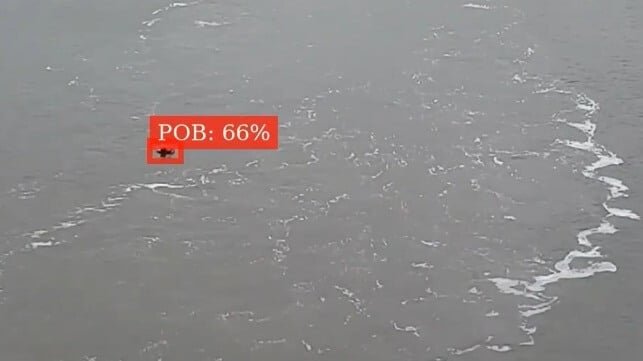The Future of Offshore Safety: AI-Based Detection Systems
[By Zelim]
The offshore energy industry is undergoing a transformation with the adoption of AI-based advanced detection technology to enhance safety and operational oversight. Operators are now exploring and implementing intelligent detection systems to minimize the risk of man overboard (MOB) incidents.
One such system gaining recognition is ZOE, developed by Edinburgh-based technology firm Zelim. After a successful year of operation on a North Sea rig managed by a prominent offshore drilling contractor, ZOE has been installed on a second jack-up rig, signaling a growing interest in leveraging machine learning for personnel safety and asset security monitoring within the offshore energy sector.
ZOE integrates camera hardware with proprietary AI software to automatically detect and track individuals who fall overboard in real-time, enabling swift and precise response actions. Sam Mayall, CEO and founder of Zelim, highlights the system’s maritime-specific design, addressing the unique challenges of man overboard incidents at sea.
The recent deployment of ZOE on a rig that frequently changes locations demonstrates its adaptability to varying environmental conditions, showcasing its reliability in different scenarios. The system utilizes machine learning models trained on a comprehensive maritime dataset, comprising millions of annotated images captured under diverse conditions.
Zelim’s commitment to developing a high-quality and specific dataset is crucial for ZOE’s performance in real-world scenarios. Mayall emphasizes the importance of accurately recognizing human targets in challenging maritime conditions, underscoring the system’s effectiveness in detecting individuals at sea.
Furthermore, ZOE seamlessly integrates with existing infrastructure on rigs and vessels, offering local processing capabilities for timely detection and alerts without relying on remote connectivity. The software architecture behind ZOE has also given rise to additional modules like Watchkeeper and Shield, extending the system’s detection capabilities to support navigation, security, and operational monitoring.
Collaboration with the US Coast Guard for testing and validation has reinforced the reliability and consistency of AI-based detection systems in comparison to human visual spotting. AI’s ability to maintain vigilance without fatigue or oversight complements human judgment, enhancing safety measures and response times in critical situations.
As offshore operators embrace AI technology for detection and alerting, these systems are not seen as replacements for human decision-making but as valuable enhancements. The rapid detection and response capabilities offered by AI systems can significantly impact outcomes in emergency situations, positioning them as integral components of safety protocols and operational strategies.
Zelim’s innovative approach to intelligent monitoring aligns with the industry’s shift towards enhancing safety and operational efficiency through AI integration. As ZOE and similar systems continue to evolve and expand their functionalities, they are poised to redefine offshore safety technology by seamlessly integrating with modern marine operations.
The products and services herein described in this press release are not endorsed by The Maritime Executive.

